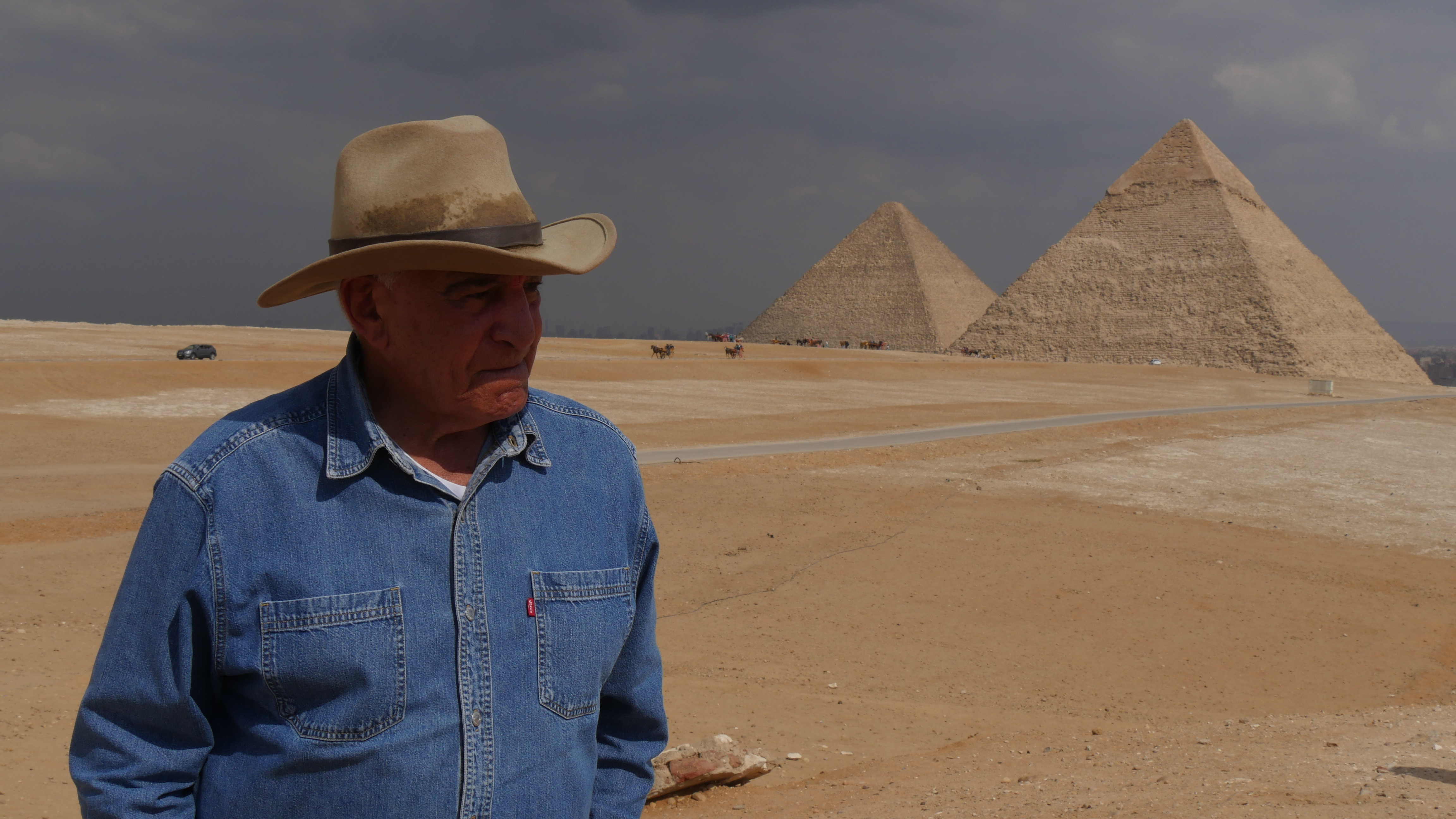Science News: Recent scientific discoveries and expert analysis
Read the latest science news and recent scientific discoveries on Live Science, where we've been reporting on groundbreaking advances for over 20 years. Our expert editors, writers and contributors are ready to guide you through today's most important breakthroughs in science with expert analysis, in-depth explainers and interesting articles, covering everything from space, technology, health, animals, planet Earth, and much more.

Explainers | Everything you need to know about the science news that matters.

Science Spotlight | Shining a light on new science transforming our world.
Latest news
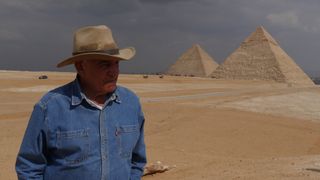
Famed archaeologist Zahi Hawass says he's close to finding Nefertiti's tomb in new documentary
By Owen Jarus published
Zahi Hawass says he hopes to discover the tomb of Nefertiti before he retires, and he believes he's getting close.
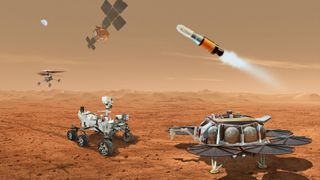
NASA's Mars Sample Return is dead, leaving China to retrieve signs of life from the Red Planet
By Patrick Pester published
NASA's plans for Mars sample return are effectively cancelled as part of a bill approved by the U.S. Congress, ending efforts to collect Perseverance rover samples that could contain evidence of alien life.
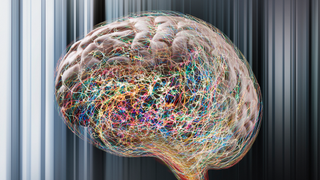
'Zombie' cells may drive common form of epilepsy
By RJ Mackenzie published
Scientists are unraveling the role of senescent cells in a common form of epilepsy, and it could point to new treatments.
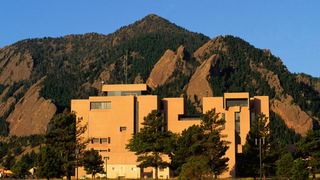
Forced closure of premier US weather-modeling institute could endanger millions of Americans
By Jane Palmer published
From high-wind forecasts and wildfire behavior to floods, aviation hazards, air quality and space weather, science developed at the National Center for Atmospheric Research informs decisions that aim to reduce risk.
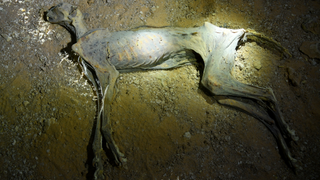
Ancient mummified cheetahs discovered in Saudi Arabia contain preserved DNA from the long-lost population
By Sarah Wild published
Cheetahs vanished from Saudi Arabia half a century ago. Now long-dead mummified big cats may help herald their return.
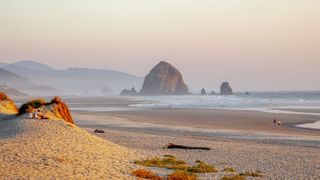
Scars from ancient 'megaquakes' at Cascadia subduction zone discovered in deep-sea landslides
By Stephanie Pappas published
Large subduction-zone earthquakes leave scars on the continental slope in the deep sea.
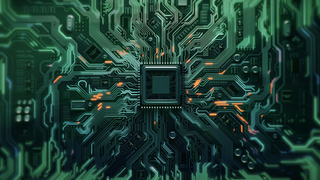
Tapping into new 'probabilistic computing' paradigm can make AI chips use much less power, scientists say
By Fiona Jackson published
A new digital system allows operations on a chip to run in parallel, so an AI program can arrive at the best possible answer more quickly.
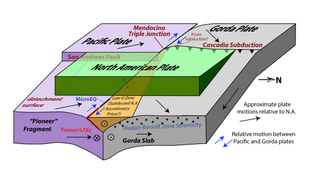
Fragment of lost tectonic plate discovered where San Andreas and Cascadia faults meet
By Stephanie Pappas published
A hidden chunk of an ancient tectonic plate is stuck to the Pacific Ocean floor and sliding under North America, complicating earthquake risk at the Cascadia subduction zone.
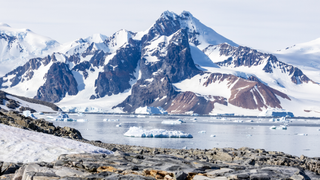
New map of Antarctica reveals hidden world of lakes, valleys and mountains buried beneath miles of ice
By Olivia Ferrari published
The map shows diverse geological features shaping Antarctic glaciers from below, which can improve climate models of ice melt.
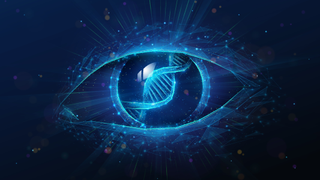
These genes were thought to lead to blindness 100% of the time. They don't.
By Stephanie Pappas published
New research finds that retinal diseases thought to map one-to-one to genetic mutations are more complicated than that.
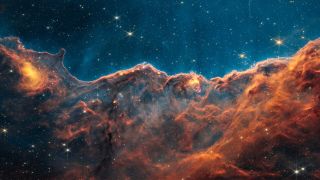
Our model of the universe is deeply flawed — unless space is actually a 'sticky' fluid
By Paul Sutter published
Our best models of the cosmos don't add up — but that could change if the universe is actually made of a viscous 'fluid,' a new paper suggests.
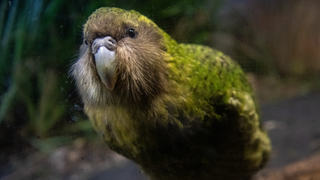
Rare nocturnal parrots in New Zealand are breeding for the first time in 4 years — here's why
By Skyler Ware published
The 2026 breeding season for endangered kākāpō could produce the most chicks in decades.
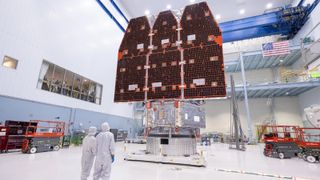
NASA's powerful new Roman Space Telescope is complete — and will soon begin mission to find 100,000 alien worlds
By Harry Baker published
New photos show off NASA's newly constructed Roman Space Telescope, which will soon help researchers unravel the mysteries of the cosmos. Experts have also revealed when the next-gen spacecraft is set to launch and begin collecting data.
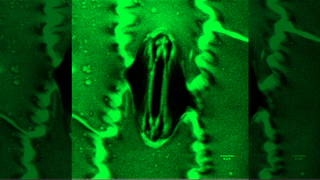
Scientists watch microscopic plant 'mouths' breathing in real time with palm-sized tool
By Sarah Wild published
Scientists say their Stomata In-Sight tool can observe plants "breathe," which could be used to bioengineer crops that require less water, making them potentially more resilient to climate change.
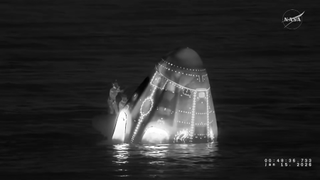
NASA astronauts back on Earth after unprecedented medical emergency on ISS
By Patrick Pester published
The SpaceX Crew-11 Dragon spacecraft splashed down this morning as four astronauts completed an unprecedented medical evacuation of the International Space Station (ISS).
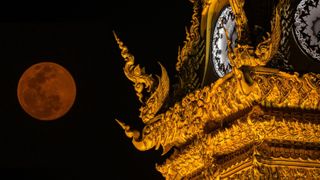
Chinese scientists unveil reliable lunar clock that accounts for Einstein's relativity
By Joanna Thompson published
A new software package detailed by Chinese scientists promises to tell what time it is on the moon, accounting for effects of relativity.
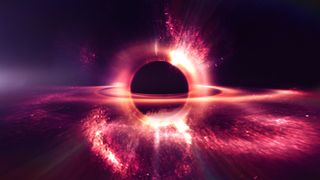
James Webb telescope saw black holes emerging from 'cocoons' near the dawn of time
By Skyler Ware published
The gaseous cocoons surrounding "little red dots" hint at their true nature, a new James Webb telescope study hints.
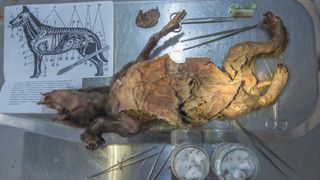
Woolly rhino flesh pulled from ancient wolf stomach gives clues to ice age giant's extinction
By Kristina Killgrove published
More than 14,000 years ago, a wolf pup ate a piece of woolly rhino. Scientists have analyzed the rhino's DNA to figure out why it went extinct.
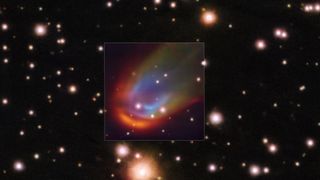
'One of those rare 'wow' moments': Zombie star near Earth has a rainbow shockwave that 'shouldn't be there'
By Harry Baker published
A new study reveals a rare-breaking white dwarf star, dubbed RXJ0528+2838, that is somehow generating a rainbow-like "bow shock" as it zooms through the Milky Way. The cosmic zombie is also ripping apart its partner star like a black hole.
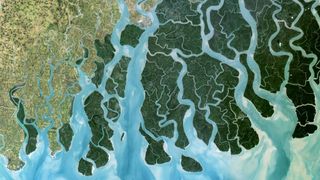
18 of Earth's biggest river deltas — including the Nile and Amazon — are sinking faster than global sea levels are rising
By Sascha Pare published
Worldwide, millions of people live in river deltas that are sinking faster than sea levels are rising, research suggests. This exacerbates the risk of catastrophic coastal flooding and land loss.
Get the world’s most fascinating discoveries delivered straight to your inbox.
 Live Science Plus
Live Science Plus






